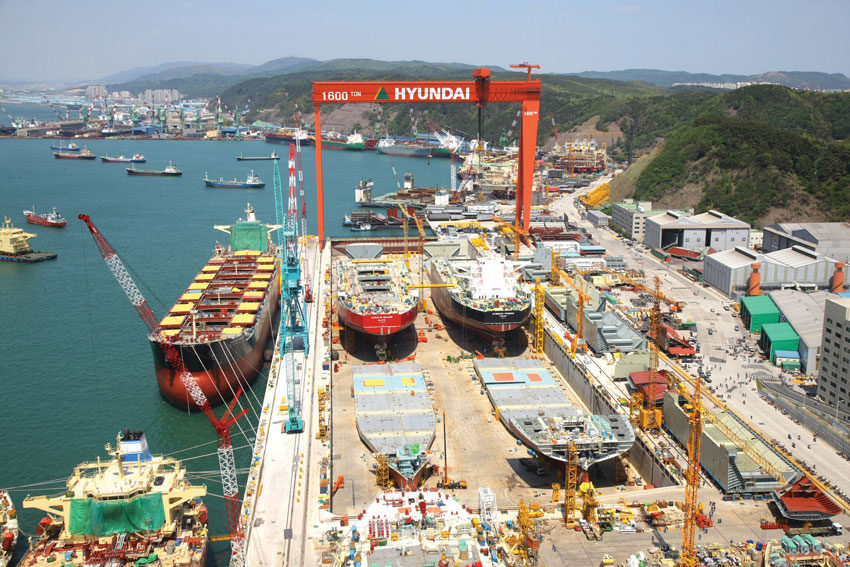Korea’s Big Three shipbuilders — Hyundai Heavy Industries, Daewoo Shipbuilding & Marine Engineering, and Samsung Heavy Industries — are enjoying an increase in order intake at the year-end. Analysts say that their outlook for 2021 is bright as ordering inquiries are growing about liquefied natural gas (LNG) carriers, container ships, and super-large crude oil carriers (VLCCs).

Hyundai Heavy Industries announced on Dec. 16 that it has won orders for six ships worth one trillion won. The six vessels are four 174,000-cubic-meter LNG carriers and two 310,000-ton VLCCs.
The unit price of the LNG carriers is US$186 million and that of VLCCs US$89 million. The new ships will be built by Hyundai Heavy Industries and Hyundai Samho Heavy Industries and be delivered to the clients including Shell by the second half of 2024.
Hyundai Heavy Industries Group has won orders for a total of 24 ships worth about 2.99 trillion won since early November. Its cumulative order receipts hit 100 ships worth US$7.85 billion, which corresponds to 71 percent of the shipbuilder’s order intake target for 2020.
Daewoo Shipbuilding & Marine Engineering (DSME) and Samsung Heavy Industries also saw their orders soar recently. DSME has won orders worth US$4.06 billion in 2020, attaining 56 percent of its target. Samsung Heavy Industries has landed orders for 28 ships (US$4 billion) in 2020.
Shipbuilding industry experts forecast that the three shipbuilders will continue to win orders in the first half of 2021. This is because global shipowners are expected to place large orders amid a boom in container transportation. Hyundai Heavy Industries and Samsung Heavy Industries recently signed LOIs for 13,000 TEU container ships with Capital Product Partners, a Greek shipping company, according to foreign media outlets. Capital Product Partners placed an order for 10 vessels including five optional ones with each of the two shipbuilders. A 13,000 TEU container ship is worth about 100 billion won. The two shipbuilders will each win a one-trillion-won contract.
Source: Business Korea